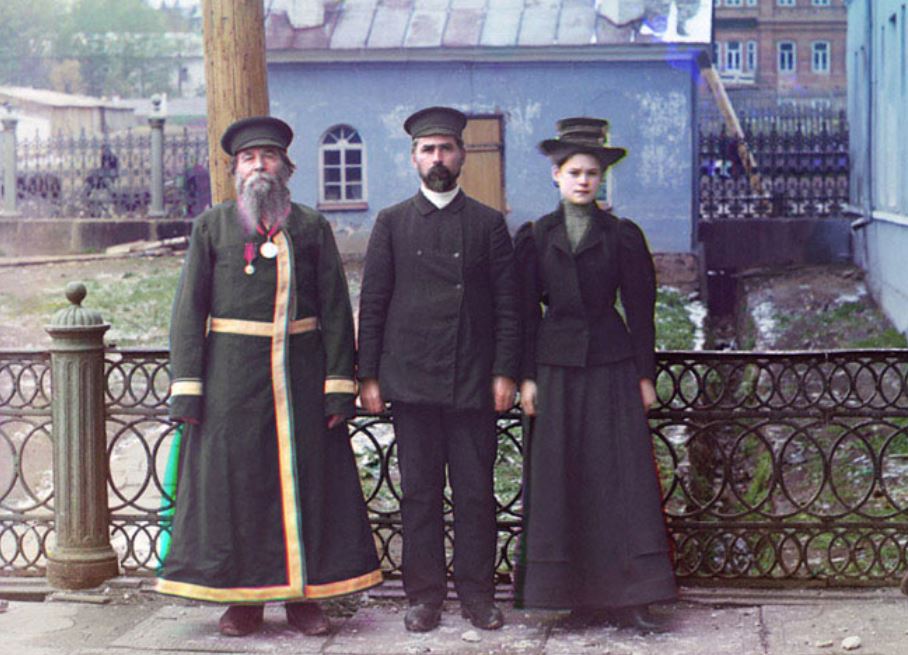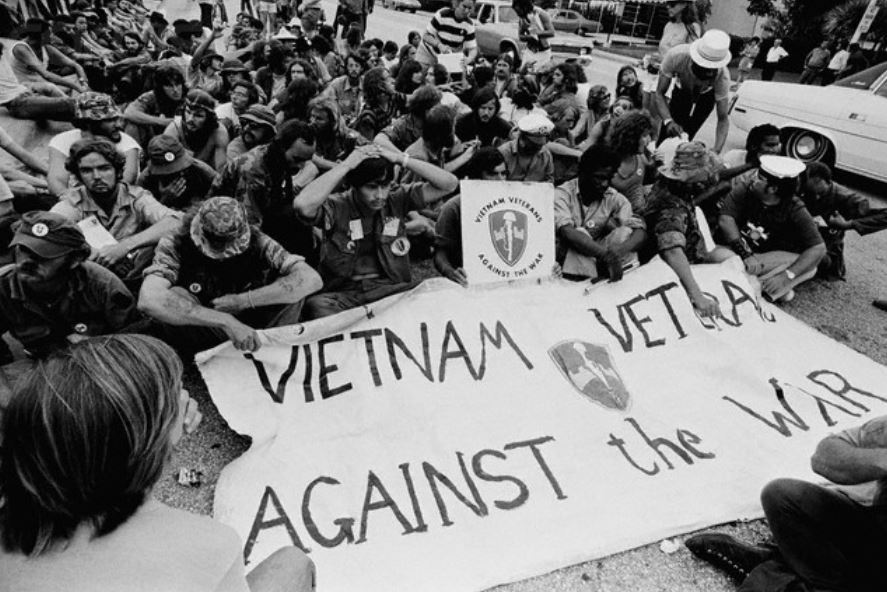archive
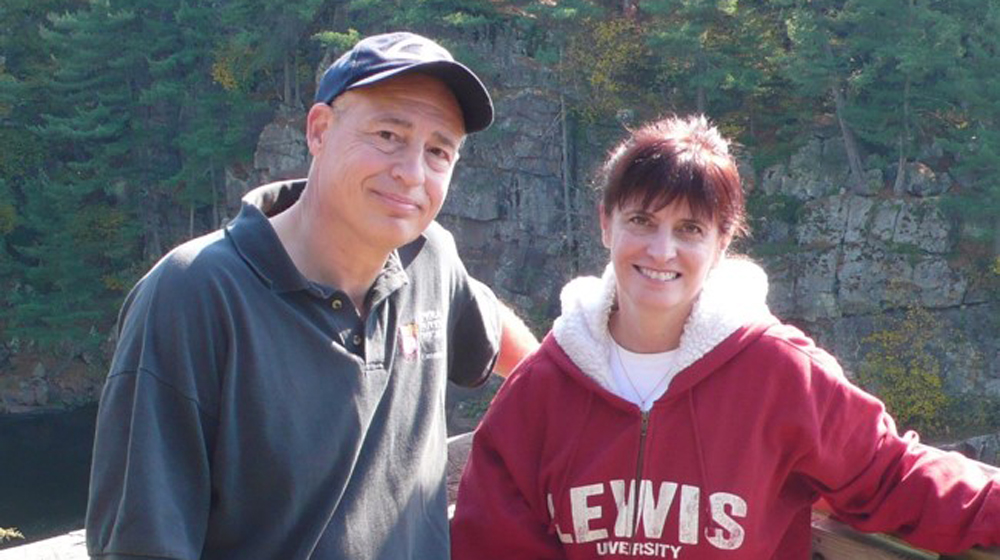
"Civil War Chicago: Eyewitness to History" on October 20th
Professor of History Theodore J. Karamanski, PhD and Loyola alumna Eileen M. McMahon, PhD, will discuss their new book on the Civil War’s transformative role in Chicago's development.
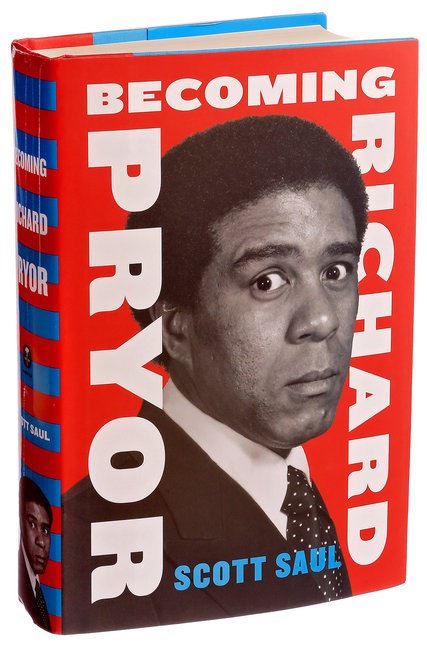
Richard Pryor Biographer to Speak at Loyola
Scott Saul, the author of Becoming Richard Pryor, will give a public lecture on the comedian entitled "Living with Richard Pryor: A Biographer's Tale" on Friday, April 24 at 3 PM.
Timothy Gilfoyle on "The Changing Forms of History"
Should history be a book discipline? What constitutes "acceptable scholarship" in history? Professor Timothy Gilfoyle considers the rich and diverse forms that historical scholarship take from books, digital media, and public history projects in his article "The Changing Forms of History" in April's edition of Perspectives on History, the AHA newsmagazine.

"The Rise of the Nation-Saint" on November 5th
Prof. Kathleen Sprows Cummings, University of Notre Dame, discusses a pre-circulated paper on the efforts of U.S. Catholics to secure their first canonized saint for the third meeting of the 2015-2016 Ramonat Seminar Series.
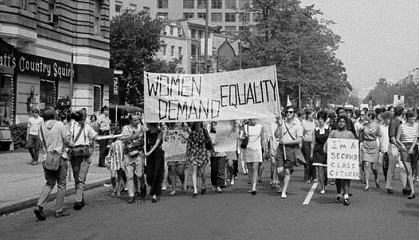
Voices of Chicago Women Activists
Celebrate Women's History Month with the Women & Leadership Archives and the Chicago Area Women's History Council. Come hear multimedia excerpts of oral histories by Columbia College honors students featuring Chicago women activists and leaders. The event will be held on Sunday, March 16th from 2:00pm-5:00pm on the 1st floor of Piper Hall.
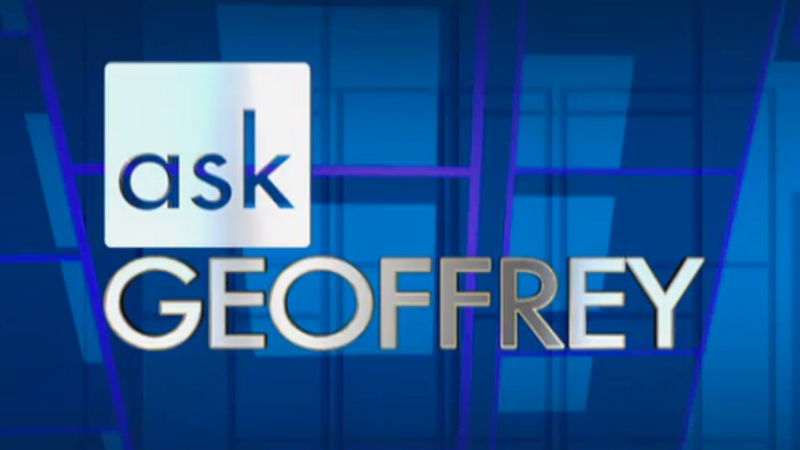
What was Chrysler Village and how did it get its name?
Public History graduate students know and shared their work on a historic nomination for the neighborhood with Ask Geoffrey on WTTW the other night.
LEARN MORE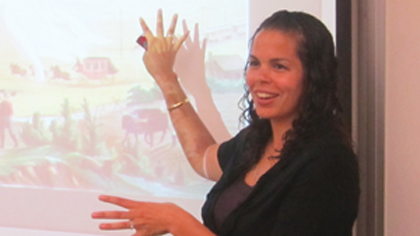
Closing the Gap
Sarah Doherty (PhD '12) reflects on the importance of the Preparing Future Faculty Program in equipping her, and other minority doctoral students, with the skills necessary for a career in academia.
LEARN MORENot-to-Miss Spring 2016 Classes!
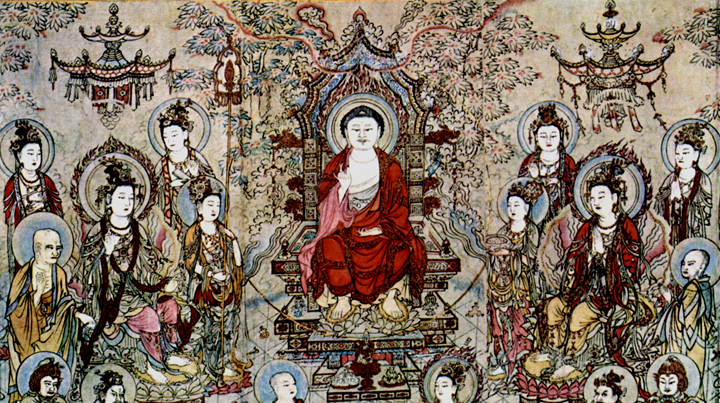
HIST 296: Gender in East Asia
Professor Elena Valussi
M 1:40-4:10 (Water Tower Campus)
evalussi@luc.edu
This course, engages with gender images and roles in China, Japan and Korea. Starting with a critical discussion of terms such as “women,” “gender” and “Confucianism” as used in historical analysis, we will analyze 'traditional' gender roles in these societies, and then discuss how, in the modern era, Marxism, feminism and globalization differently affected the power relations between genders. We will end by addressing how gender relations have changed in contemporary East Asia

History 300: Climate and History
Professor Benjamin H. Johnson
TTH 11:30-12:45
bjohnson25@luc.edu
Discussion of global warming in recent decades has drawn attention to the role of climate in human affairs. This course explores how both natural and anthropogenic climate change has shaped human history, from the emergence of homo sapiens to contemporary geo-politics.
Questions to be discussed in this course include: how did climate variability shape the societies of the past? Why were some vulnerable to change while others proved more resilient? How did climate patterns and meteorological events such as “El Niño” link the fortunes of distant societies? How have scientists come to understand how the world’s climate works, and what are the consequences of these understandings? How did transnational and international institutions such as the United Nations support these investigations and sometimes act on them? In what ways is climate change affecting the contemporary world, from local environmental shifts to tensions between the global North and South? Finally, how might the answers to these questions inform our responses to the challenge of contemporary human-caused climate change?
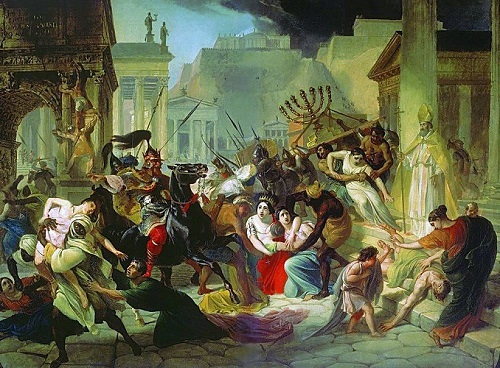
History 300B-002: Barbarians and the Fall of the Roman Empire
Professor Leslie Dossey
MWF 11:30-12:20
ldossey@luc.edu
This course examines the interaction between Romans and the so-called “barbarians” such as the Goths, Huns, and Arabs from the 2nd to the 6th centuries CE. We will be addressing issues such as: the late Roman military – whether the enemies were getting stronger or the Roman military weaker; the “movement of peoples” - whether large-scale migrations really occurred; the ethnic identity of peoples like the Goths or Huns – were they Roman constructs or did they have some basis in reality (as assessed by archaeology and scientific evidence such as the isotopic analysis of bones); the incorporation of immigrants - both how well the Romans integrated them and how modern attitudes toward immigration have influenced the scholarship on ancient “barbarians.” Readings will be a mix of recent secondary scholarship and primary sources. In addition to a midterm and final exam, students will be a writing medium length (10-12 page) research paper based on primary sources.
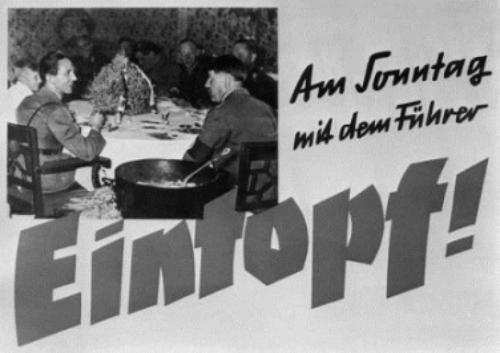
History 300C: Food, Hunger, and Power in the 19th and 20th Centuries
Professor Alice Weinreb
TTH 2:30-3:45
aweinreb@luc.edu
This course examines the ways in which modern history has been shaped by concerns with and conflicts over food. This course will address the role that food has played in major historical topics of the past two centuries including imperialism, genocide, and war, as well as addressing the history of contemporary American food policies. Lectures will focus on Germany, Italy, India, Ireland, the Soviet Union, and the United States.
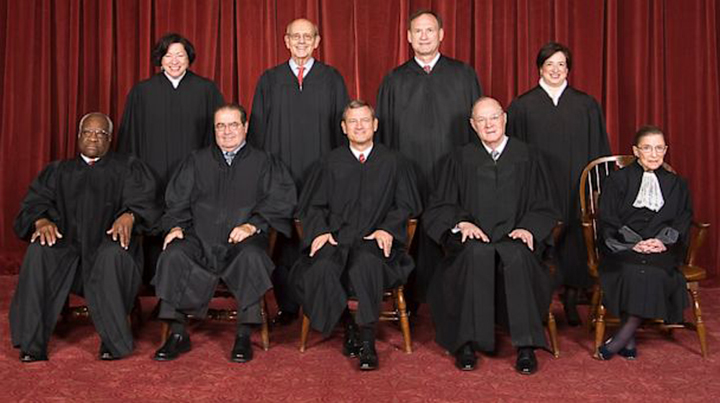
History 300D: American Law and Public Policy
Professor Elizabeth Tandy Shermer
MWF 9:20-10:10
eshermer@luc.edu
This course broadly explores the making of American law and public policy since the Civil War. Students will investigate efforts to obtain social and economic justice, maintain both law and order, and create meaningful change in both state ways and folk ways. Outcomes include a deeper understanding of how laws have been passed and public policy has been crafted. Students will also come to understand how laws and policies have been implemented, continued, reformed, and, in some cases, repealed over time.
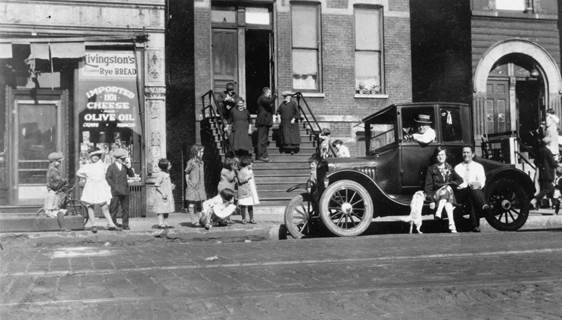
HIST 300D: The History of Italians in Chicago
Professor Dominic Candeloro
M 4:15-6:45
dcandeloro@luc.edu
The History of Italians in Chicago offers an in-depth look at one of Chicago's important ethnic groups. Class presentations, readings and student projects will focus on the trends and personalities in the immigration process, neighborhood history, social mobility, the labor movement, politics, business, organized crime, the impact of Fascism and World War II, and the post World War II migration of Italians to Chicago. In addition to mastering the course material in class sessions and the readings, students will do a hands-on written or media project derived from primary sources.
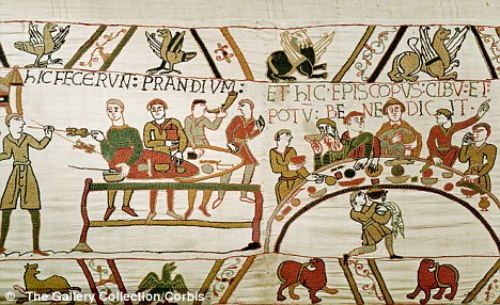
HIST 329: England to 1485: A Cultural History
Professor Theresa Gross-Diaz
TH 4:15 - 6:45
tgross@luc.edu
Britons, Romans, Anglo-Saxons, Vikings, Normans, and other peoples contributed ideas and institutions that made England a cultural melting-pot in the Middle Ages, yet the end result is decidedly “English". What made England England? We will look at the factors that came together to create a distinctive political structure, as well as explore England's cultural history as manifested through writings in several genres, material remains, and art – including food and games! Course assignments include primary source studies and a short research “dabble”.

History 336: Germany in the Twentieth Century
Professor David Dennis
MWF 10:25-11:15
dennis@luc.edu
This course will cover the major phases of modern German history: Wilhelmine Germany, Germany in the First World War, Weimar Germany, National Socialist Germany, Germany in the Second World War, Post-War West Germany, East Germany, and Reunification. While establishing the background of political and social developments, we will carefully consider responses to these issues by leaders in German intellectual and cultural life. Using literary texts—as well as visual arts, music and film—we will investigate intellectual currents under these headings, as well as the devastating historical developments that triggered them.
This is a "blended" class: Taking advantage of many of the new technologies available to educators today, this course will involve independent study of online lectures and course materials (allowing you to go through them on your own time, at your own pace) , combined with individual and in class discussion of these materials with the professor. As a result this course will constitute a rich synthesis of learning methods: full video lectures and, essentially, an "honors" discussion section with the professor.
HIST 340W: Russia pre-1917: Empire Building
Professor Michael Khodarkovsky
TTH 1:00-2:15
mkhodar@luc.edu
By the middle of the 19th century, Russia emerged as the largest land empire in the world. How did Russia survive the ravages of the Mongols under Chinggis Khan, the reign of terror under Ivan the Terrible, westernize under Peter the Great, open itself to new ideas under Catherine the Great, while it continued to preserve an oppressive institution of serfdom and remained a deeply divided society ready to explode in 1917? This course is writing intensive.
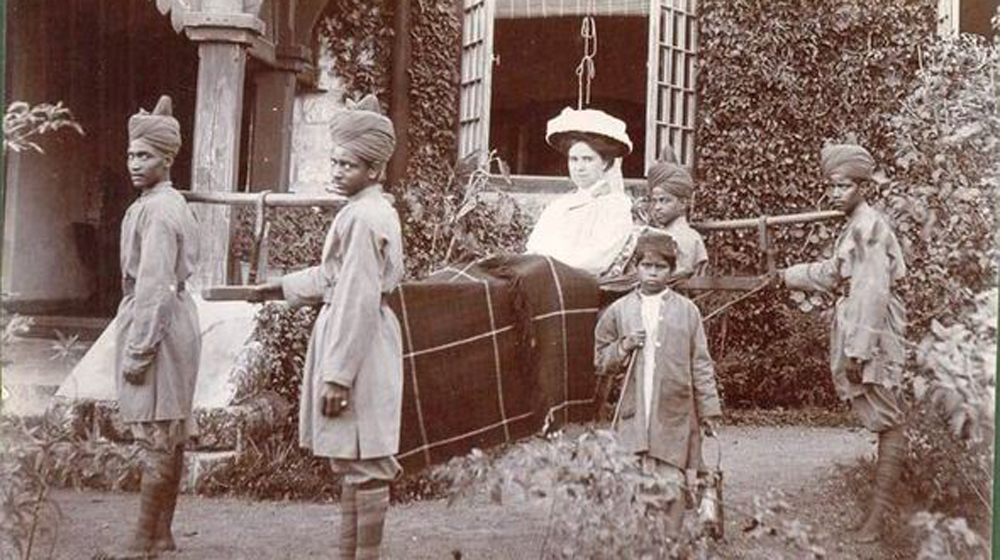
HIST 343W: History of South Asia, 1700-1947
Professor John Pincince
Th 2:30-5:00
jpincince@luc.edu
This course will examine the modern history of South Asia from 1700-1947. We will explore the rich history of South Asia with a thematic and chronological approach in which we focus largely on the following topics: Mughal Empire, European interaction and colonization, indigenous collaboration and resistance, reformist and nationalist responses to British colonialism, the struggle for independence, and the tragedy of Partition in 1947. Class Attributes: Asian Studies, Global and International Studies, Islamic World Studies; 300-level; “non-Western”; writing intensive.
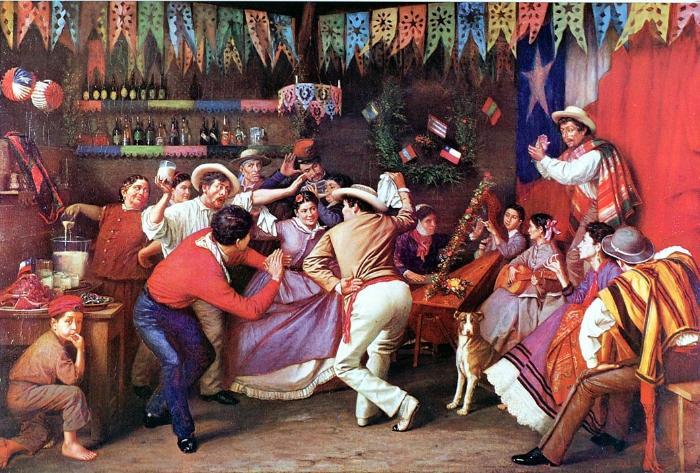
HIST 354: Latin America in the 19th Century
Professor Victor Padilla
MWF 11:30-12:20
vpadilla@luc.edu
We open the course with Spanish and Portuguese colonies in the Americas. The course proceeds to focus on Latin America’s transition from colonial status to political independence and upon the problems of creating new states (and nations?) in the 19th century. Among the topics of central interest are the difficulties encountered in forming stable polities (and nations) after independence and the patterns of economic and social change. The class is organized around the concept of a dialogue between "national" political histories--that is, the formation of independent states after centuries of Spanish and Portuguese colonial rule -- and the heterogeneous experiences and histories of the ordinary people that made up these societies. Our attention will focus primarily on Mexico, Colombia, Argentina, Puerto Rico, Cuba, Chile and Brasil. We end the course with the 20th century’s first revolution, the Mexican in 1910.
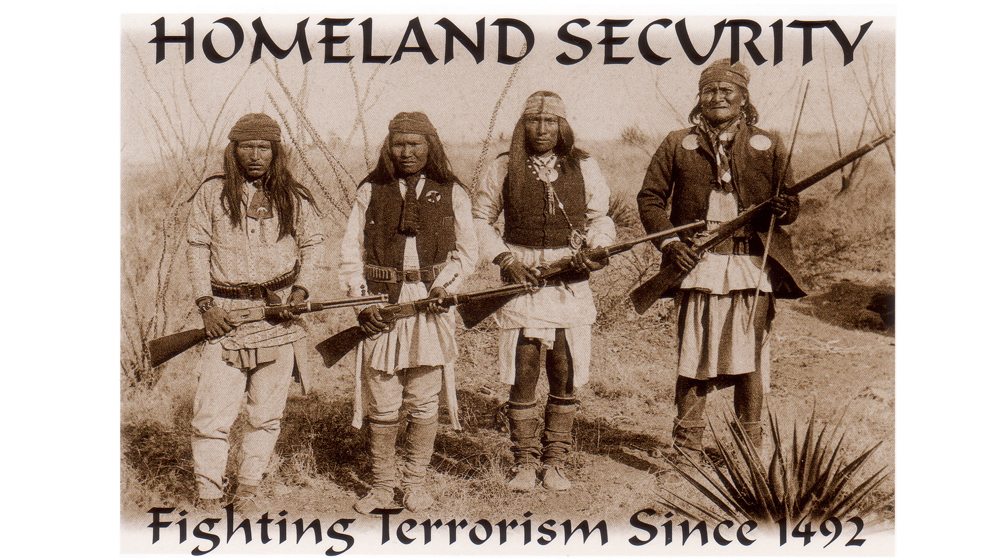
History 376A: History of the American Indian
Professor Theodore Karamanski
TTh 2:30PM-3:45
tkarama@luc.edu
Who were the first Americans? How did they fight, survive, and endure in the face of the Invasion of their homeland. What was the impact of disease, government policy, and genocidal actions upon their demography? Who were the Indian “heroes” that successfully fought to protect their culture? These questions are at the heart of this survey of the role of native people in American life.
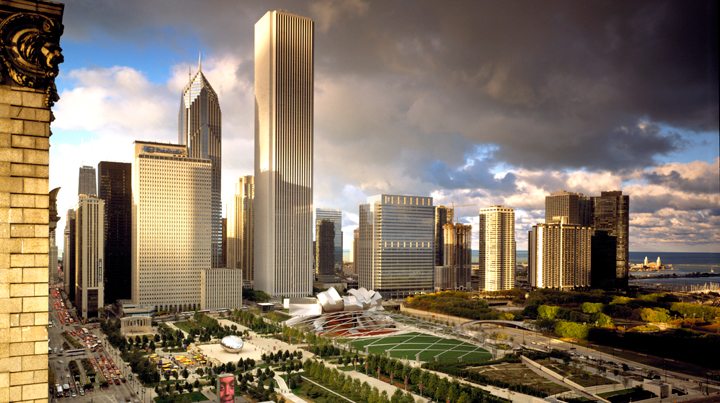
HIST 385: The History of Chicago
Professor Timothy Gilfoyle
M 2:45-5:15
tgilfoy@luc.edu
The United States was born in the country and moved to the city. This course examines the transformation of the United States through the prism of metropolitan Chicago. Between 1600 and 2016, the region now called Chicago evolved from an area filled with Native American settlements to one of the three largest urban metropolitan regions on the North American continent. This courses examines that evolution by focusing on major themes in American urban history related to Chicago: the interaction of private commerce with cultural change; the rise of distinctive working and middle classes; the creation and segregation of public and private spaces; the formation of new and distinctive urban subcultures organized by gender, work, race, religion, ethnicity, and sexuality; problems of health and housing resulting from congestion; and the building of the physical city. Students will be able to demonstrate historical knowledge of Chicago’s history, improve their writing ability, and develop critical thinking and communication skills.
HIST 394-1W: The Sixties
Profess Joseph Lapsley
MWF 1:40-2:30
jlapsle@luc.edu
This course traces and documents changes of the 1960s, an era that has quickly become covered in myth despite its nearness to our own times. The period from the roughly the election of John F. Kennedy (1960) to the fall of Saigon (1975) remains crucial for an understanding of current issues and attitudes. Those years reshaped American culture and society in many ways. Vivid events and slogans shattered the images of an earlier time and created a new America.
Complete listing of Spring 2016 Undergraduate Courses!

